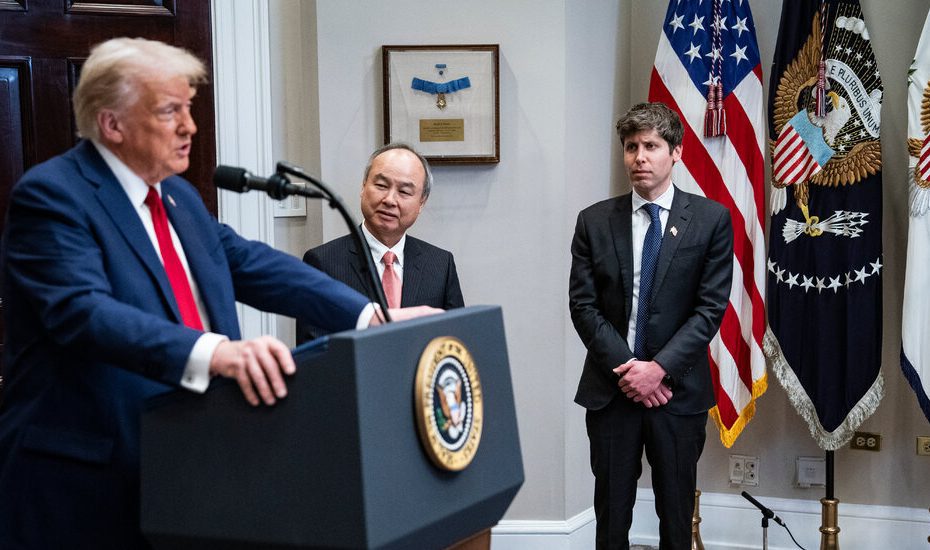OpenAI, the artificial intelligence company in San Francisco that has had years of money -raising frenzy, is in conversation with the Japanese conglomerate Softbank for an investment of up to $ 25 billion, according to three people who are familiar with the negotiations.
Part of that money could be used to cover the dedication of OpenAI to Stargate, the $ 100 billion data center project announced in the White House last week, the people said. But the money would be separate from the Softbank investment already puts that project.
The sources, who asked for anonymity because the conversations were confidential, emphasized that the discussion about the conditions of the investment is still underway. One person who is familiar with the negotiations said that the deal OpenAi could appreciate $ 250 billion near $ 250 billion, while the other brought the appreciation closer to $ 340 billion. The larger figure would make OpenAi the second most valuable private company in the world, just behind the SpaceX of Elon Musk, according to CB Insights, who follows startups.
Stargate, a joint venture from Softbank, OpenAI and the software company Oracle, could lead to $ 500 billion in investments in the computer infrastructure, the companies have said.
The negotiations were previously reported by the Financial Times.
OpenAi started the AI Boom at the end of 2022 with the release of its online chatbot, chatgpt. But since then the company has had an unusual tumultuous few years.
Managers are still trying to repair the reputation of OpenAi after the board of directors unexpectedly dismissed his Chief Executive, Sam Altman, about a year after Chatgpt was released. He was restored five days later, but OpenAi has since lost several prominent employees, including Ilya Sutkever, his chief scientist and co-founder.
In October, OpenAi completed a fundraising deal of $ 6.6 billion that the company appreciated to $ 157 billion, which doubled the valuation of the high -profile company almost nine months earlier. Softbank was part of that deal.
In December, OpenAi revealed new AI technology called OpenAI O3. But not long after, a little-known Chinese start-up called Deepseek, the technical industry with the release of an AI system that can correspond to leading AI products made in the United States.
The Chinese company said it has built its new AI technology for a lower price and with less difficult to get computer chips than its American competitors, and an industrial-wide conviction challenged that larger and better AI would cost many billions of dollars. OpenAi said on Wednesday that it investigated whether Deepseek may have wrongly harvested the data of OpenAi to help build his own systems.
(The New York Times has sued OpenAi and his partner, Microsoft, accuses them of infringing the copyright of news content with regard to AI systems. OpenAi and Microsoft have denied those claims.)
Since Deepseek claimed that the AI could build better, there have been questions about the wisdom to invest hundreds of billions of dollars in new data centers. But many experts believe that huge amounts of computing power companies such as OpenAI will continue to offer a lead in the market.
With more chips they can explore new ways to build artificial intelligence. In other words, more chips can still give companies a technical and competitive advantage. More chips will also be needed to operate the new “reasoning” AI models such as OpenAI O3. These require more computing power when people and companies use them.
Erin Griffith contributed reporting.

